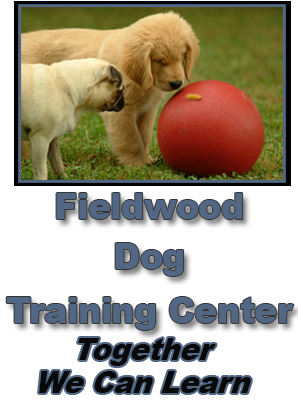My dog doesn’t like being brushed.
My dog is jealous when I’m around other dogs.
My dog doesn’t like to be crowded.
My dog doesn’t like to be touched.
As instructors we often hear these and similar comments from our students. Many dog owners seem to accept their dog’s quirks without question, thinking they only can apply a Band-Aid rather than a fix, and are ready to spend the dog’s life managing the issue. Unknowingly, they think it’s just how it will be not realizing these kinds of issues could possibly be fixed with the proper approach and training. While looking trivial, these seemingly benign quirks can develop into serious problems if not addressed.
Dogs that don’t like to be brushed or touched can make a trip to the groomer or the veterinarian a nightmare. A dog jealous of other dogs is a dog fight waiting to happen. And, as we live in an imperfect world, the dog that doesn’t like to be touched or crowded can actually be dangerous. In a perfect world all children would know how to safely approach a dog and all parents would always be vigilant when their child was around dogs. Unfortunately, all too often children unknowingly rush up to a dog and give it a hug. If the dog doesn’t like to be touched or crowded, this can easily turn serious for all involved if the dog snaps or bites in response.
Another issue we see is the dog that barks incessantly during class. This dog is not necessarily aggressive or over reactive, but is usually just aroused and stimulated by the surroundings he finds himself in. The owner is embarrassed, doesn’t know what to do, and the dog is stressed.
Until these dogs are helped and their quirks dealt with, they will always be on edge and will never able to relax and enjoy life… and neither will their human family. I feel it’s a terrible way to go through life especially when with a little help and training the issue can be fixed rather than just covered by a Band-Aid.
While people bring their dogs to classes for elementary obedience skills, class is also an opportunity to help resolve a dog’s quirks. These issues won’t magically go away without a combined effort from both the owner and the class instructor. Some are a quick fix, others will require more time, but all should be addressed.
A good instructor, whether teaching puppy kindergarten, a basic class, or advanced classes, should be able to recognize an issue and be able to pull a possible solution from their vast bag of training tricks. Like most things in life, one size doesn’t fit all so the instructor needs to be flexible, intuitive, and creative when determining a course of action.
Fieldwood Dog Training Center has a good reputation of helping people and their dogs not only with learning basic obedience skills and fun dog sports, but also with helping our students’ dogs become the best companion they are capable of being. Our instructors have a vast knowledge of canine behavior and behavior modification and we often pool that knowledge to come up with solutions for an instructor’s student.
Fix or Band-aid? I encourage everyone to take an objective look at their dog and, if there are issues, discuss your concern with your instructor. You are your dog’s advocate and care taker and we are here to help. Recognizing and helping your dog overcome his quirks will ensure you both enjoy each others company and your life together for years to come.

